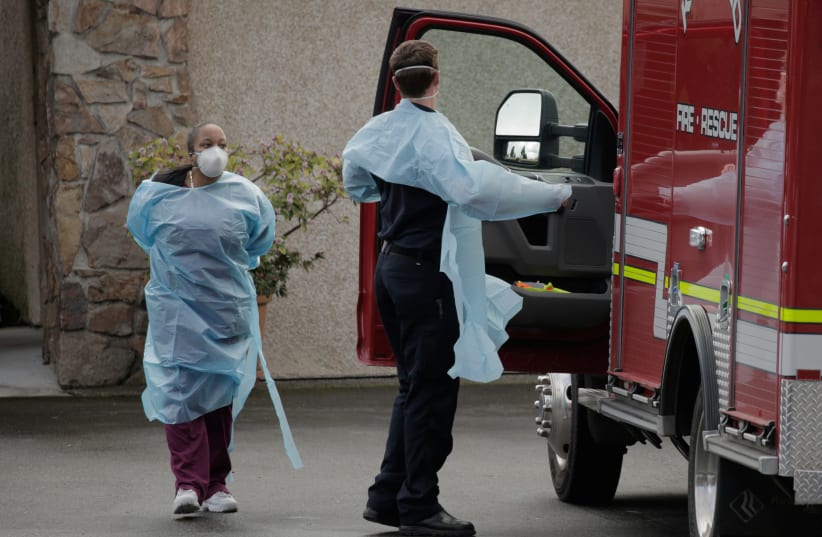As the coronavirus is increasingly spreading worldwide, countries are looking for the most efficient ways to test people who may have potentially contracted the virus. In Australia, Germany, the United States, the United Kingdom, South Korea and other countries, "drive through" coronavirus testing clinics have opened to help prevent the spread of the novel coronavirus.
Patients drive by the clinic and stay in their car with the windows open while medical staff in full protective gear collect samples, including through mouth swabs, which are then sent to a lab for analysis.
One of the most important advantages of the drive-through clinics is that they prevent potentially infected patients from leaving their cars and exposing other people to the virus, including doctors and nurses.
A South Australian hospital has recently opened its first "drive through" coronavirus testing service to help prevent the spread of the coronavirus in the country, ABC reported. The clinic is located at the former Repatriation Hospital site in Adelaide's southern suburbs. Once the clinic is fully operational, it is expected to test one patient every 20 minutes. At the moment, the service operates between eight and nine hours per day, but if demand increases, it will offer longer opening hours.
This Australian hospital has opened a "drive-through" coronavirus testing clinic to help stem the spread of the virus. https://t.co/LOSzz1WKjV pic.twitter.com/ITMkvtG6Ff
— ABC News (@ABC) March 10, 2020
Before they can get tested in the drive-through clinic, patients first have to visit their general practitioner and receive their referral. Patients are also required to book in advance.
"This is a pathology collection point only at this stage, and we will be making it very clear to GPs that they'll need to see the patients first and then refer the patients to here after they've organized a collection time, and provided us with a request form," said SA Pathology's clinical service director, Dr. Tom Dodd.
"It presents no risk at all for anyone working on the site and will support isolation of those patients until the results of their tests are known," he added.
South Korea's drive-through clinics are also effective. Reuters reported that it takes just 10 minutes for a patient to have their swab taken and test results returned. South Korean officials say the initiative has reduced testing time by a third.
"We can diagnose a lot of people in a short period of time, so we can effectively control the coronavirus," Dr. Seo Wan-seok, vice director of Yeungnam University Medical Center, told Reuters. "And secondly, we can minimize the infection."
Similarly, the University of Washington Medical Center in North Seattle has opened a drive-through clinic to test employees for coronavirus, CBS reported. The clinic is currently available to employees and students, who must go online and fill out a survey about their symptoms to receive an appointment. The drive-through can currently test 40 to 50 people per day.
"What we've learned from viruses like SARS and other coronaviruses is they can really rapidly disseminate through a hospital and cripple a health care workforce," said Dr. Seth Cohen, Medical Director for Infection Prevention at UW Medicine. "We're trying to stay ahead of it and prevent that from happening."
As of March 11, the number of people infected with the coronavirus worldwide topped 119,000, according to Reuters.
